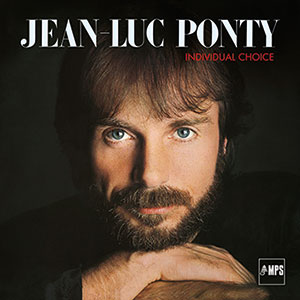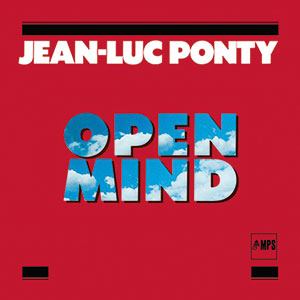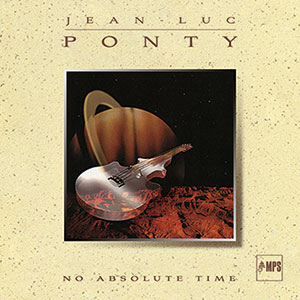Jean Luc-Ponty: Individual Choice
Author: Stuart Nicholson
View record and artist detailsRecord and Artist Details
Musicians: |
Randy Jackson (el b) |
Label: |
MPS |
Magazine Review Date: |
October/2023 |
Media Format: |
CD, LP |
Catalogue Number: |
0218125MSW |
RecordDate: |
Rec. March-May 1983 |
Open Mind
Musicians: |
Jean-Luc Ponty (vn, syn, drum machine) |
Label: |
MPS |
Magazine Review Date: |
October/2023 |
Media Format: |
CD, LP |
Catalogue Number: |
0218125MSW |
RecordDate: |
Rec. May-July 1984 |
No Absolute Time
Musicians: |
Guy N’Sangué (g) |
Label: |
MPS |
Magazine Review Date: |
October/2023 |
Media Format: |
CD, LP |
Catalogue Number: |
0218123MSW |
RecordDate: |
Rec. December 1992 and March 1993 |
Having played in the second version of the Mahavishnu Orchestra, Ponty might not have liked having to admit that his regular band in the late 1970s – on albums such as Imaginary Voyage (1976), Comic Messenger (1977) and Jean-Luc Ponty: Live (1978) – sounded decidedly Mahavishnu-ish with the sheer level of visceral excitement he was generating in live performance; in fact, on Jean-Luc Ponty: Live he ramped up the musical tension and release so high it left him nowhere to go.
So, by the time of Individual Choice, Ponty was experimenting with a totally electronic concept with the then (1983) new Prophet 5 analogue synth, which was beginning to define popular music and would do so for years, while its design provided the blueprint for the poly synth that followed. It was a case of back to the drawing board, recording all the background parts on synth and adding his violin (plus guests Duke and Holdsworth) later. Today, the original Prophet 5 sound is sought after and back then it was cutting edge technology, and with New Age mainstreaming, there’s ambient sound washes alongside what he did before, serious grooves, albeit electronically derived that actually presage Techno, Electro and House; indeed, this album was extensively sampled.
Open Mind continues Ponty’s odyssey into electronic sounds, rhythmic patterns and pushing the potential of the Prophet to its limits. What emerged were his trademark grooves, a minimum of harmonic movement, but when it did come it was telling. Ponty also introduces the Roland TR-808 drum machine here, another instrument that would come to dominate pop. The tracks with guest Chick Corea – ‘Open Mind’ and ‘Watching Birds’ – are album highlights.
In 1991, Ponty recorded Tchokola with West African musicians, and on No Absolute Time he adapted the African sound to his own style. It is a well-conceived project, the polyrhythmic title track giving way to a triplet groove, while ‘Blue Mambo’ locks into the kind of groove that was so compelling in live performance. While the backdrop to these albums – the first two originally released on the Atlantic label and the latter on Epic – is very much of the 1980s, Ponty’s own playing on violin and electric violin is technically and rhythmically assured – and timeless in its improvisatory zeal.
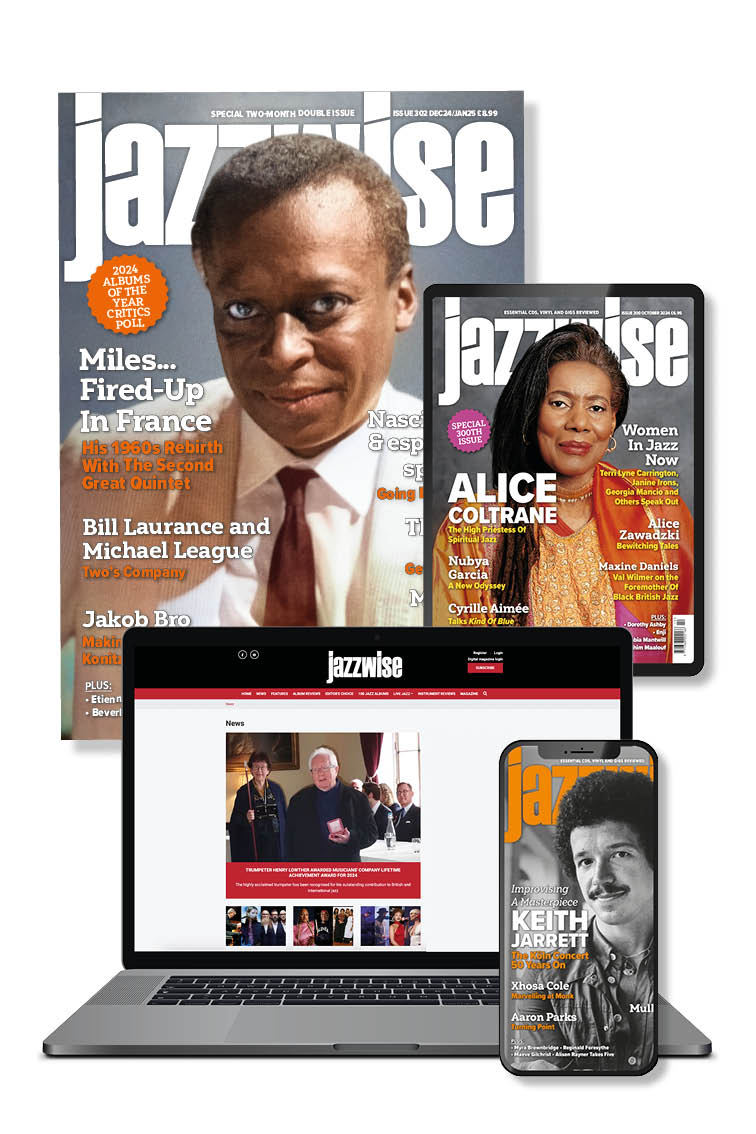
Jazzwise Full Club
- Latest print and digital issues
- Digital archive since 1997
- Download tracks from bonus compilation albums throughout the year
- Reviews Database access
From £9.08 / month
Subscribe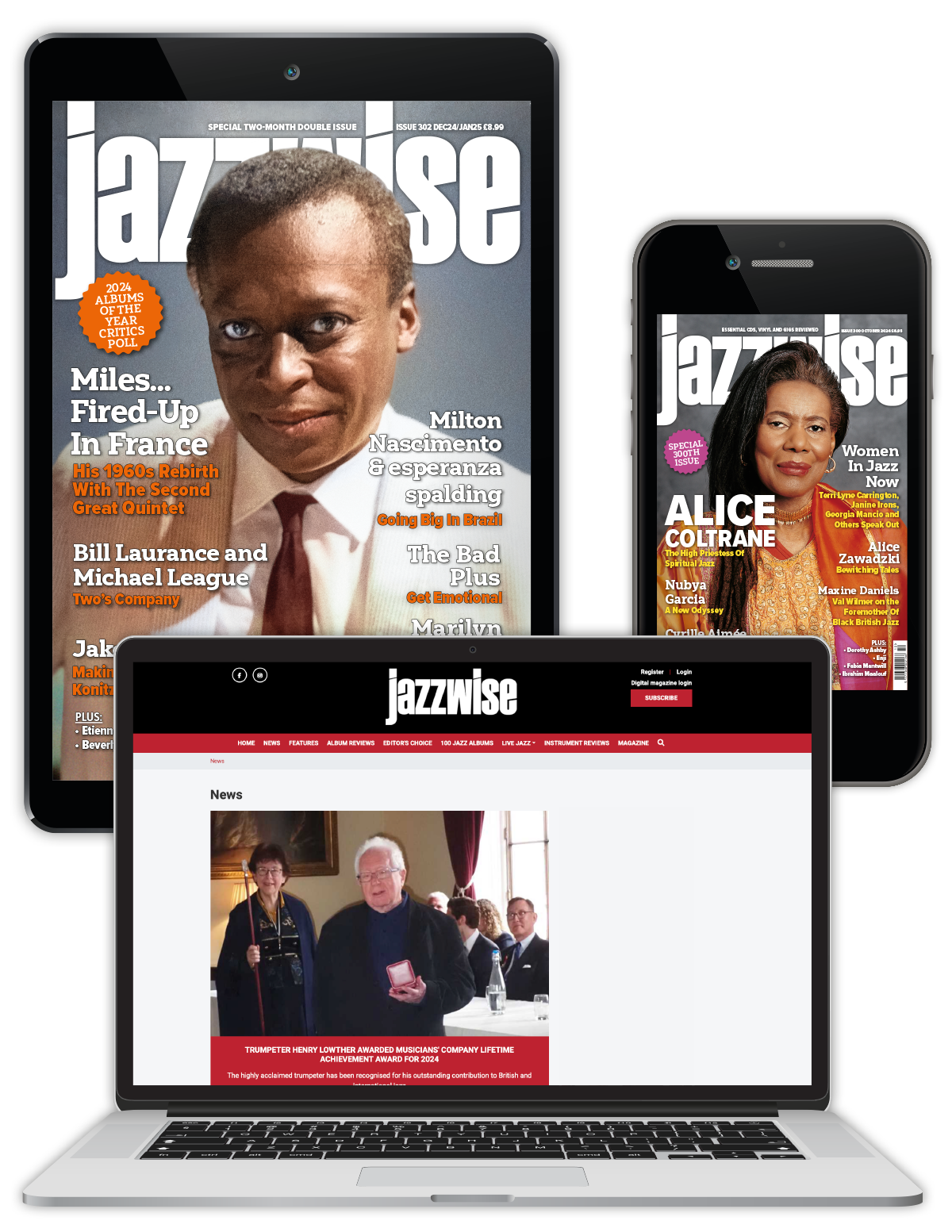
Jazzwise Digital Club
- Latest digital issues
- Digital archive since 1997
- Download tracks from bonus compilation albums during the year
- Reviews Database access
